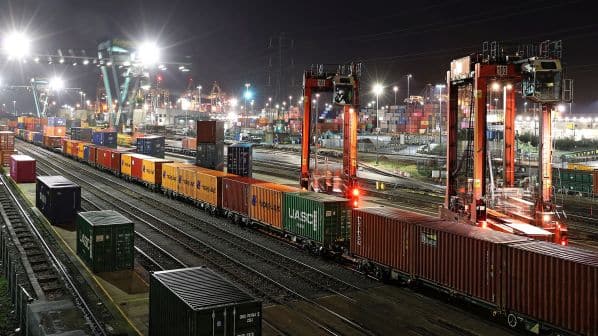Big increase in road to rail modal shift at port of Southampton

Terminal operator DP World reports rail container shipments up 66% over last six months.
DP WORLD says that it has seen a significant increase in the share of containers transported by rail from its terminal at the port of Southampton in southern Britain. Over the six months between September 2023 and February 2024 rail's share of freight moved through the maritime terminal increased by two-thirds, from 21% to 35%. DP World says the containers would have previously moved by road.
These positive results stem from a trial modal shift programme that began last September. It is designed to increase the attractiveness of rail for container shippers through carefully-targeted financial inducements. The 66% increase in rail traffic at Southampton has been assisted by the introduction of four new train services from the terminal to Cardiff, East Midlands Gateway (Derby/Nottingham), Hams Hall (Birmingham) and Doncaster.
Since the programme started, approximately 4500 tonnes of CO2 emissions have been avoided by the choice of rail over road, the equivalent of 13,500 lorry journeys. The programme works by offering customers a financial incentive for each inward-bound container transported via rail to a terminal within a 225km radius from Southampton. This covers a wide area, including major centres like Birmingham, Bristol, Cardiff and London.
The incentive (currently GBP80 per container) is financed by a GBP10 levy on all inward-bound containers. This fee is repaid on all containers transported by rail outside the 225km incentive zone. "We believe that our modal shift programme at Southampton has allowed our customers to explore how rail can be effectively utilised to achieve lower-carbon international supply chains serving the UK economy," says Mr John Trenchard, vice president, UK commercial and supply chain, at DP World.
"We are continually engaging with the market to strengthen this service, so we look forward to providing our customers with new options to meet their decarbonisation goals."